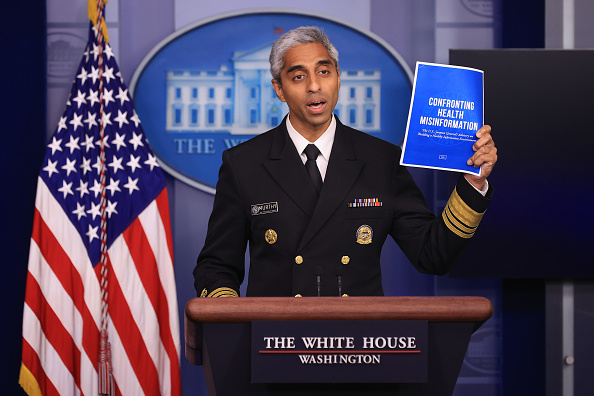California physicians and surgeons may lose their medical licenses if they are found to be disseminating “misinformation or disinformation” about COVID-19.
Gov. Gavin Newsom signed into law AB 2098, which expands the definition of “unprofessional conduct” to include going off message on COVID-19, on September 30.
Offenses defined in the bill include giving out false or misleading information on the nature of COVID-19, the “risks of the virus, its prevention and treatment; and the development, safety, and effectiveness of COVID-19 vaccines.”
The state’s Medical Board and Osteopathic Board have the authority to act against licensed physicians charged with unprofessional conduct. Boards can discipline doctors in a variety of ways, including suspension, mandatory retraining, and license revocation.
The bill says the board must consider the intent, scope, and nature of the information in determining action.
Defining Misinformation
“They defined it in the law, but it is still vague,” said Marilyn Singleton, M.D., J.D., a board-certified anesthesiologist who has practiced in California, on the Heartland Daily Podcast on September 13.
“Disinformation still has to have so-called ‘malicious intent,’ but that is not fully described,” said Singleton. “The worst is the [definition of] misinformation, in that they call it false information that is contradicted by scientific consensus. Medicine has never been driven by consensus.”
Singleton says two well-known examples of debate in health care history prove this point: handwashing in health care practice, which was long ignored and even denounced, and ulcers being caused by a bacterium instead of worry or spicy foods.
Whether the law will drive physicians out of California is hard to predict, says Singleton, as it is unlikely patients will “rat out” a doctor if they have a good relationship.
“If in the case of COVID, you wrote your patient a prescription for ivermectin, you might have some activist pharmacist that might turn the doctor in,” said Singleton. “But this is the problem with laws like this: they can upend a person’s life.
“It’s sad they don’t take these things into account, but they don’t care,” said Singleton. “That is the bottom line: they don’t care.”
And Fauci?
Under California’s new standard, presidential health care advisor Anthony Fauci, M.D., could end up in the crosshairs.
“No wonder he’s retiring,” wrote columnist Roger L. Simon in The Epoch Times.
“And where will the line be drawn?” wrote Simon. “Will it be no masks necessary, one mask necessary, two masks necessary, one week to break the curve, two weeks, six months, one booster, two boosters, boosters until we’re dead and buried? What constitutes misleading the public? Dr. Fauci, at one time or another, recommended all of the above in less than two years, and that’s barely getting started.”
AnneMarie Schieber (amschieber@heartland.org) is the managing editor of Health Care News
